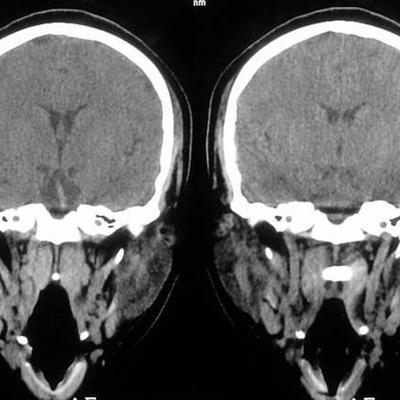Side effects of diclofenac sodium sustained release tablets?
summary
Diclofenac sodium sustained-release tablets belong to non steroidal anti-inflammatory drugs. When we take drugs, we often have side effects due to the incorrect dosage or way of taking drugs. Therefore, we should understand the side effects of drugs before purchasing drugs to prevent their harm to our body. What are the side effects of diclofenac sodium sustained-release tablets?
Side effects of diclofenac sodium sustained release tablets?
Gastrointestinal reaction: gastrointestinal dysfunction, including upper abdominal discomfort, nausea and vomiting, bleeding and ulcers. It was caused by blocking COX-1. Prostaglandins produced by COX-1 play an important role in inhibiting gastric acid secretion and protecting gastric mucosa. Oral administration of prostaglandin analogues such as colloidal bismuth subcitrate can reduce gastrointestinal damage. Skin reaction: including rash, measles, pruritus, exfoliative dermatitis, photosensitivity, etc.

Kidney damage: some susceptible people will cause acute kidney damage, which can be recovered after drug withdrawal. The reason is that it inhibits the production of factors that play an important role in maintaining renal blood flow, such as PGE2 and PGI2. Long term administration can cause "analgesic nephropathy", leading to chronic nephritis and renal papillary necrosis. Some pathological conditions or combined with other renal risk factors such as congestive heart failure, liver cirrhosis, hypertension, diabetes and so on have decreased renal function, combined with diuretics and other conditions are more prone to renal damage.

Cardiovascular system: long term large-scale use of NSAIDs can cause cardiovascular adverse reactions, including arrhythmia, elevated blood pressure, palpitations, etc. It is related to its inhibitory effect on prostaglandins, antidiuretic effect and vasoconstrictive effect. Non steroidal anti-inflammatory drugs have a significant effect on β The effect of receptor blockers is greater, which may be caused by down regulating the activity of basic plasma renin β Receptor blockers did not work.

matters needing attention
Blood system reaction: NSAIDs can almost inhibit platelet aggregation and prolong bleeding time, but it is generally reversible except aspirin. There is also a risk of aplastic anemia. It may be related to allergic reaction. Other adverse reactions included central nervous system reactions such as dizziness, headache, drowsiness, and mental disorder. Tinnitus, deafness, blurred vision, abnormal taste, tachycardia, hypertension, etc. Through the above introduction, I believe that all patients have a certain understanding of the efficacy of diclofenac sodium sustained-release tablets. Here, I would like to remind you to take drugs according to the dosage in the instructions, so as not to cause unnecessary harm.














